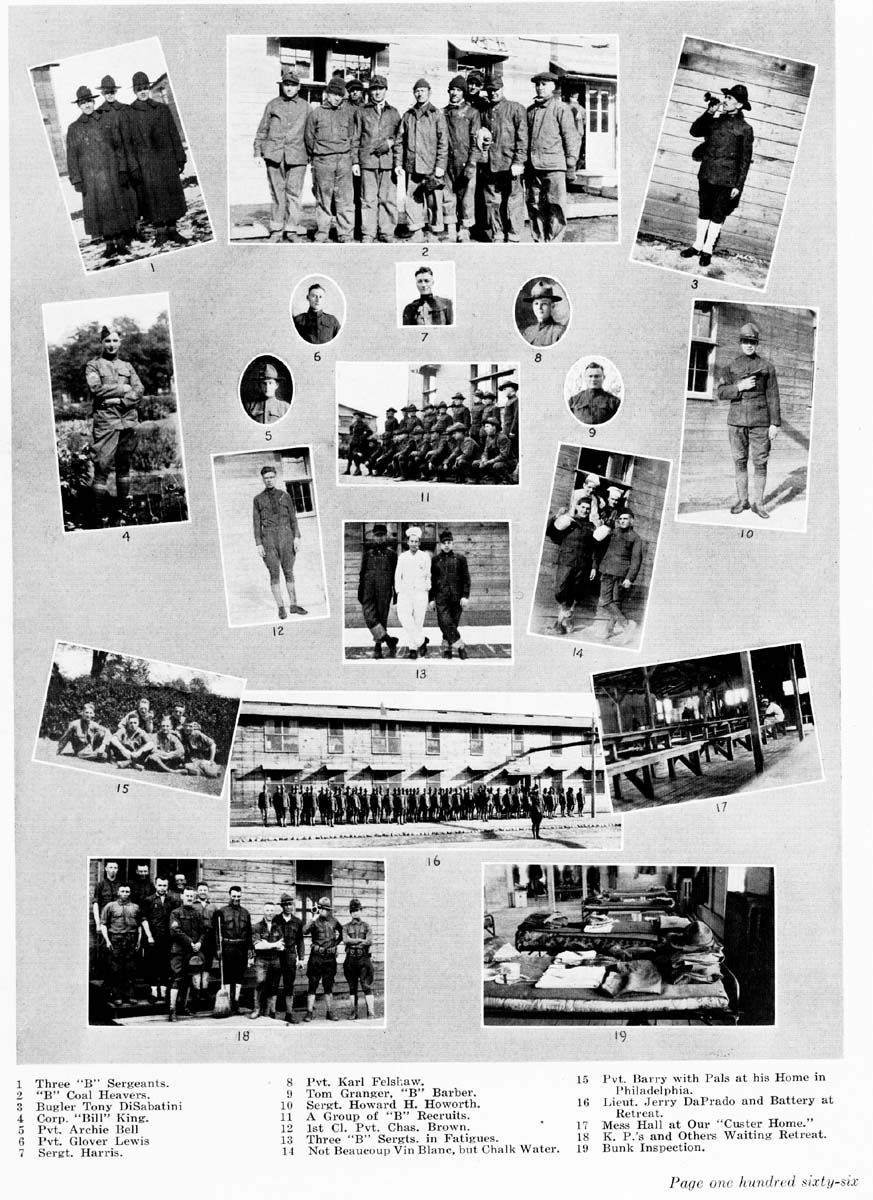 |
| | CORP. WILLIAM E. KING
341 Benjamin St., Saginaw, W. S., Mich.
Inducted September 22, 1917, at Custer.
Corporal King was one of the pioneers of the Battery and was promoted to the rank of Corporal June 13, 1918.
At Coetquidan the training was so intensive that the command brought in some four thousand prisoners to do the work about camp. On one occasion he was Corporal of the Guard and had been placed over about fifty prisoners. This was his first experience and he had not been instructed by the officers that a German non-com gave the instructions to the prisoners, upon receiving which they would go in different directions to do their work. After the Corporal had lined up his group they all started off to different points, whereupon he hurriedly had to detail a guard to follow them, meanwhile thinking that he would have to give his men orders to shoot to kill the supposedly escaping prisoners. A German non-com came up and explained in English to him that the German prisoners were willing plodders and would go to their different kinds of work themselves. Then the officer of the day came up to Corporal King and explained the procedure to him.
It may here be said that German prisoners congratulated themselves generally on being prisoners of the Americans. In their own army they received nine cents a day, while with us they were well paid, were fed the same rations and given candy, tobacco, etc., the same as the Yanks. They became very proud of their service in the American army and would attach the gold chevrons to their left sleeves in token of six months’ service.
While on the train going to the front Corporal King became sick from canned goods, which were part of our rations, and in a weakened condition, which he did not admit, he plodded on with us until we reached the Puvenelle Woods, where his condition grew so acute that after seven days’ action he was sent to the hospital at Toul. He remained in the hospital for a week, was then sent to a casual camp and later transferred to the 19th Field Artillery, Fifth Division, with whom he went to Luxemberg, where he remained seven months. While in Luxemberg he had opportunity to visit several towns in Germany and to study their language.
He sailed for the United States July 4, 1919. |